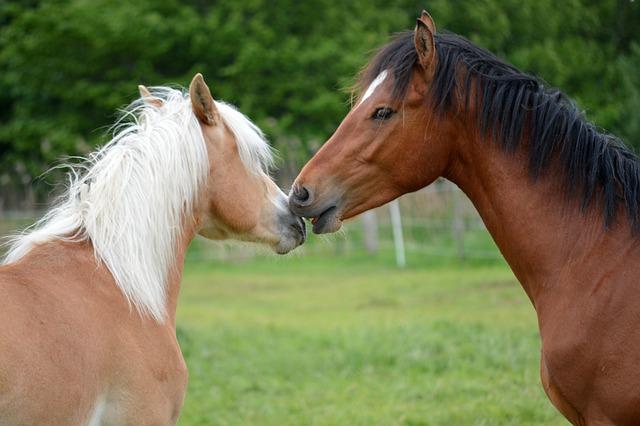In a cozy suburban home, the Johnson family welcomed a Golden Retriever named Max. From the moment he bounded through the door, laughter filled the air. Max became the heart of their family, effortlessly blending playtime with gentle cuddles. His patience with the kids during their adventures and his protective nature made him the perfect companion. Golden Retrievers are not just dogs; they are loyal friends, intelligent learners, and loving guardians. If you’re seeking the best purebred family dog, look no further—Max is the embodiment of joy and devotion.
Contents
- Understanding Family Dynamics and Dog Breeds
- Evaluating Temperament and Trainability in Purebred Dogs
- Health Considerations for Long-Term Family Companionship
- Top Recommendations for Purebred Family Dogs Based on Lifestyle Needs
- Q&A
Understanding Family Dynamics and Dog Breeds
When considering the perfect addition to your family, understanding the intricate dynamics of family life is crucial. Each family has its unique rhythm, influenced by factors such as the age of children, activity levels, and lifestyle preferences. A dog that aligns with these dynamics can enhance family bonding and create a harmonious home environment. For instance, families with young children may benefit from breeds known for their patience and gentleness, while active families might prefer breeds that thrive on exercise and play.
Choosing the right breed involves recognizing the specific needs and characteristics of your family. Some breeds are renowned for their friendly and sociable nature, making them ideal companions for children. Consider breeds such as:
- Golden Retrievers – Known for their loyalty and gentle disposition.
- Labrador Retrievers – Energetic and playful, perfect for active families.
- Beagles – Friendly and curious, great for families who enjoy outdoor adventures.
On the other hand, some breeds may require more training and socialization to thrive in a family setting. Understanding the temperament and energy levels of various breeds is essential. For example, breeds like the Border Collie are highly intelligent and require mental stimulation, making them suitable for families who can dedicate time to training and activities. Conversely, breeds such as the Bulldog are more laid-back and can adapt well to a quieter household.
Ultimately, the best purebred family dog is one that complements your family’s lifestyle and values. It’s important to assess not only the breed’s characteristics but also how they will fit into your daily routine. Engaging with breeders, visiting shelters, and spending time with different breeds can provide invaluable insights. By taking the time to understand both your family dynamics and the traits of various dog breeds, you can make an informed decision that will lead to a joyful and fulfilling companionship for years to come.
Evaluating Temperament and Trainability in Purebred Dogs
When considering a purebred dog for your family, understanding their temperament and trainability is crucial. Different breeds exhibit distinct personality traits that can significantly influence their compatibility with family life. For instance, breeds like the Labrador Retriever are renowned for their friendly and outgoing nature, making them excellent companions for children. In contrast, breeds such as the Shiba Inu may display a more independent temperament, which could pose challenges in a family setting.
Trainability is another essential factor to evaluate. Some breeds are naturally more eager to please and respond well to commands, while others may require more patience and consistent training. Breeds like the Golden Retriever and Border Collie are often highlighted for their intelligence and willingness to learn, making them ideal candidates for families looking to engage in obedience training or fun activities. On the other hand, breeds such as the Bulldog may be less motivated by traditional training methods, necessitating a different approach to ensure they thrive in a family environment.
It’s also important to consider the energy levels of various breeds. High-energy dogs, like the Australian Shepherd, need ample exercise and mental stimulation to prevent boredom and destructive behavior. Families with active lifestyles may find these breeds to be a perfect match, as they can keep up with outdoor adventures and playtime. Conversely, breeds like the Basset Hound are more laid-back and may be better suited for families who prefer a quieter home life.
Lastly, socialization plays a pivotal role in a dog’s temperament. Early exposure to various environments, people, and other animals can help shape a well-rounded family pet. Breeds that are naturally more sociable, such as the Cavalier King Charles Spaniel, often adapt well to family dynamics and can easily integrate into various social situations. In contrast, breeds that tend to be more reserved may require additional socialization efforts to ensure they feel comfortable and confident in family settings.
Health Considerations for Long-Term Family Companionship
When selecting a purebred family dog, it’s essential to consider the long-term health implications for both the pet and your family. Certain breeds are predisposed to specific health issues that can affect their quality of life and, consequently, your family’s experience with them. Understanding these potential health concerns can help you make an informed decision that aligns with your family’s lifestyle and needs.
Many purebred dogs come with a set of genetic predispositions that can lead to chronic health problems. For instance, breeds like the Bulldog and German Shepherd are known for their susceptibility to hip dysplasia, while Cavalier King Charles Spaniels often face heart issues. By researching these conditions, you can choose a breed that is less likely to encounter serious health challenges, ensuring a happier and healthier companionship.
Regular veterinary check-ups and preventive care are crucial for maintaining your dog’s health over the years. Establishing a relationship with a trusted veterinarian can provide you with valuable insights into the specific needs of your chosen breed. Additionally, consider the importance of a balanced diet, regular exercise, and mental stimulation, as these factors significantly contribute to a dog’s overall well-being.
Moreover, it’s vital to involve your family in the care and training of your new pet. Teaching children about responsible pet ownership not only fosters a loving bond but also instills a sense of accountability. Engaging in activities such as daily walks, playtime, and training sessions can enhance the physical and emotional health of your dog, creating a fulfilling environment for both the pet and your family.
Top Recommendations for Purebred Family Dogs Based on Lifestyle Needs
When selecting a purebred family dog, it’s essential to consider your lifestyle and the specific needs of your household. For active families who enjoy outdoor adventures, breeds like the **Labrador Retriever** and **Golden Retriever** are excellent choices. These dogs are not only friendly and loyal but also possess high energy levels, making them perfect companions for hiking, running, or playing fetch in the park. Their playful nature and intelligence also make them easy to train, ensuring they fit seamlessly into your family dynamic.
If your family prefers a more laid-back lifestyle, consider breeds such as the **Bulldog** or **Basset Hound**. These dogs are known for their calm demeanor and affectionate nature, making them ideal for families who enjoy cozy evenings at home. Bulldogs, with their distinctive appearance and gentle temperament, are particularly good with children, while Basset Hounds are known for their loyalty and love of lounging around. Both breeds require moderate exercise, making them suitable for families who may not have the time for extensive outdoor activities.
For families with allergies or sensitivities, hypoallergenic breeds like the **Poodle** or **Portuguese Water Dog** can be a perfect fit. These breeds are known for their low-shedding coats, which help reduce allergens in the home. Poodles come in various sizes—standard, miniature, and toy—allowing families to choose one that best fits their living situation. Their intelligence and eagerness to please make them highly trainable, while Portuguese Water Dogs are energetic and love to swim, making them great for families who enjoy water activities.
Lastly, if you have young children, breeds such as the **Beagle** and **Cavalier King Charles Spaniel** are known for their friendly and playful nature. Beagles are curious and social, making them great companions for kids who love to explore. Their gentle disposition ensures they get along well with children, while Cavaliers are affectionate lap dogs that thrive on companionship. Both breeds are adaptable and can fit into various living situations, making them wonderful additions to any family.
Q&A
-
What is the best pure breed family dog?
While the “best” dog can vary based on individual family needs, breeds like the Labrador Retriever, Golden Retriever, and Beagle are often recommended for their friendly nature, adaptability, and loyalty. These breeds typically excel in family environments, making them excellent companions for children and adults alike.
-
How do I choose the right breed for my family?
Consider factors such as your family’s activity level, the ages of your children, and any allergies. Research breeds that match your lifestyle. For example, active families may prefer high-energy breeds like the Border Collie, while families with young children might benefit from the gentle temperament of a Cavalier King Charles Spaniel.
-
Are purebred dogs more suitable for families than mixed breeds?
Not necessarily. While purebred dogs often come with predictable traits and temperaments, many mixed breeds can also be wonderful family pets. The key is to assess the individual dog’s personality and behavior rather than solely focusing on breed.
-
What should I consider before bringing a purebred dog home?
Before adopting, consider the dog’s size, grooming needs, exercise requirements, and potential health issues associated with the breed. Additionally, ensure that your family is ready for the commitment of dog ownership, including training, socialization, and regular veterinary care.
selecting the best purebred family dog hinges on understanding your family’s unique needs and lifestyle. By choosing a breed known for its temperament, compatibility, and loyalty, you can ensure a loving companion that enhances your family’s joy for years to come.

大家好,我是彼得潘,專業的手法身體治療師。我喜歡探索和研究各種主題,並透過與人工智慧的合作分享專業、實用、有趣的文章。我們定期進行人工審核,以確保內容的準確性。如果您發現文章中有任何不準確的地方,請隨時與我們聯繫,我們會及時糾正。您可以透過 [email protected] 與我們聯繫。



